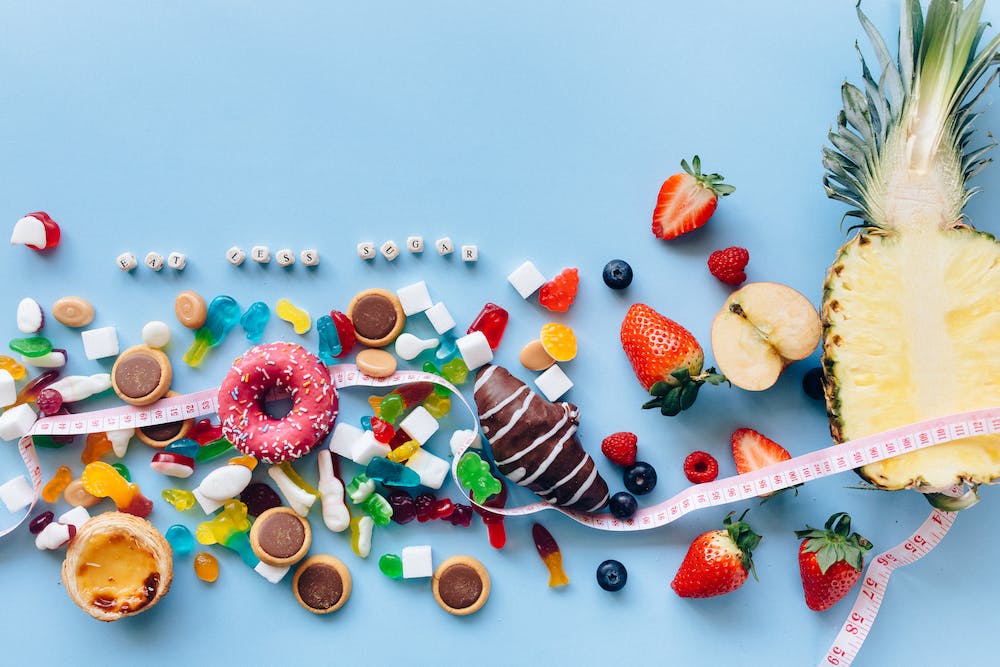Optimizing Nutrition for Athletes: Fueling Performance and Recovery
 If you are an athlete, you know how important nutrition is for your performance and recovery. Nutrition is not just about eating enough calories, but also about choosing the right foods and timing your meals and snacks. In this blog post, we will share some tips on how to optimize your nutrition for athletic success.
If you are an athlete, you know how important nutrition is for your performance and recovery. Nutrition is not just about eating enough calories, but also about choosing the right foods and timing your meals and snacks. In this blog post, we will share some tips on how to optimize your nutrition for athletic success.
 First, let’s talk about macronutrients: carbohydrates, protein and fat. These are the main sources of energy and building blocks for your muscles, organs and tissues. Each macronutrient has a specific role and function in your body, so you need to balance them according to your goals and needs.
First, let’s talk about macronutrients: carbohydrates, protein and fat. These are the main sources of energy and building blocks for your muscles, organs and tissues. Each macronutrient has a specific role and function in your body, so you need to balance them according to your goals and needs.
 Carbohydrates are the primary fuel for your muscles and brain. They are stored as glycogen in your liver and muscles, and can be quickly used for energy during exercise. Carbohydrates also help to spare protein from being used as energy, which is important for muscle growth and repair. The amount of carbohydrates you need depends on the type, intensity and duration of your exercise, as well as your body weight and composition. As a general rule, you should aim for 3 to 10 grams of carbohydrates per kilogram of body weight per day, depending on your activity level. For example, if you weigh 70 kg and train for 2 hours a day, you may need around 420 to 700 grams of carbohydrates per day.
Carbohydrates are the primary fuel for your muscles and brain. They are stored as glycogen in your liver and muscles, and can be quickly used for energy during exercise. Carbohydrates also help to spare protein from being used as energy, which is important for muscle growth and repair. The amount of carbohydrates you need depends on the type, intensity and duration of your exercise, as well as your body weight and composition. As a general rule, you should aim for 3 to 10 grams of carbohydrates per kilogram of body weight per day, depending on your activity level. For example, if you weigh 70 kg and train for 2 hours a day, you may need around 420 to 700 grams of carbohydrates per day.
 Protein is essential for muscle growth, repair and maintenance. It also supports your immune system, hormone production and enzyme function. Protein is made up of amino acids, which are the building blocks of your muscles and tissues. Some amino acids are essential, meaning they cannot be made by your body and must be obtained from food. The amount of protein you need depends on your body weight, composition and activity level. As a general rule, you should aim for 1.2 to 2 grams of protein per kilogram of body weight per day, depending on your training intensity and goals. For example, if you weigh 70 kg and want to build muscle mass, you may need around 140 grams of protein per day.
Protein is essential for muscle growth, repair and maintenance. It also supports your immune system, hormone production and enzyme function. Protein is made up of amino acids, which are the building blocks of your muscles and tissues. Some amino acids are essential, meaning they cannot be made by your body and must be obtained from food. The amount of protein you need depends on your body weight, composition and activity level. As a general rule, you should aim for 1.2 to 2 grams of protein per kilogram of body weight per day, depending on your training intensity and goals. For example, if you weigh 70 kg and want to build muscle mass, you may need around 140 grams of protein per day.
 Fat is another important source of energy, especially for low-intensity and long-duration exercise. Fat also helps to absorb fat-soluble vitamins (A, D, E and K), regulate inflammation and hormone production, and support brain health. Fat is composed of fatty acids, which can be classified as saturated, monounsaturated or polyunsaturated. Some fatty acids are essential, meaning they cannot be made by your body and must be obtained from food. The amount of fat you need depends on your total calorie intake, body composition and health status. As a general rule, you should aim for 20 to 35% of your total calories from fat per day, with most of it coming from unsaturated sources such as nuts, seeds, avocados, olive oil, fish and eggs.
Fat is another important source of energy, especially for low-intensity and long-duration exercise. Fat also helps to absorb fat-soluble vitamins (A, D, E and K), regulate inflammation and hormone production, and support brain health. Fat is composed of fatty acids, which can be classified as saturated, monounsaturated or polyunsaturated. Some fatty acids are essential, meaning they cannot be made by your body and must be obtained from food. The amount of fat you need depends on your total calorie intake, body composition and health status. As a general rule, you should aim for 20 to 35% of your total calories from fat per day, with most of it coming from unsaturated sources such as nuts, seeds, avocados, olive oil, fish and eggs.
 Now that you know the basics of macronutrients, let’s talk about how to time them around your training sessions. This is important because different nutrients have different effects on your performance and recovery.
Now that you know the basics of macronutrients, let’s talk about how to time them around your training sessions. This is important because different nutrients have different effects on your performance and recovery.
 Before exercise: The main goal of pre-exercise nutrition is to provide enough energy and hydration for your workout, while preventing hunger, fatigue and gastrointestinal discomfort. Ideally, you should eat a meal or snack that contains a moderate amount of carbohydrates (to fuel your muscles), some protein (to prevent muscle breakdown) and a little fat (to slow down digestion and provide satiety). You should also drink plenty of water or sports drinks to hydrate yourself and replenish electrolytes. The timing of your pre-exercise meal or snack depends on the size and composition of it, as well as your personal preference. As a general rule, you should eat a large meal (containing about 1 to 4 grams of carbohydrates per kilogram of body weight) 3 to 4 hours before exercise; a small meal (containing about 0.5 to 1 gram of carbohydrates per kilogram of body weight) 1 to 2 hours before exercise; or a snack (containing about 0.25 to 0.5 gram of carbohydrates per kilogram of body weight) 30 minutes to an hour before exercise.
Before exercise: The main goal of pre-exercise nutrition is to provide enough energy and hydration for your workout, while preventing hunger, fatigue and gastrointestinal discomfort. Ideally, you should eat a meal or snack that contains a moderate amount of carbohydrates (to fuel your muscles), some protein (to prevent muscle breakdown) and a little fat (to slow down digestion and provide satiety). You should also drink plenty of water or sports drinks to hydrate yourself and replenish electrolytes. The timing of your pre-exercise meal or snack depends on the size and composition of it, as well as your personal preference. As a general rule, you should eat a large meal (containing about 1 to 4 grams of carbohydrates per kilogram of body weight) 3 to 4 hours before exercise; a small meal (containing about 0.5 to 1 gram of carbohydrates per kilogram of body weight) 1 to 2 hours before exercise; or a snack (containing about 0.25 to 0.5 gram of carbohydrates per kilogram of body weight) 30 minutes to an hour before exercise.
 During exercise: The main goal of nutrition during exercise is to maintain blood glucose levels and hydration status, while preventing dehydration,
During exercise: The main goal of nutrition during exercise is to maintain blood glucose levels and hydration status, while preventing dehydration,





